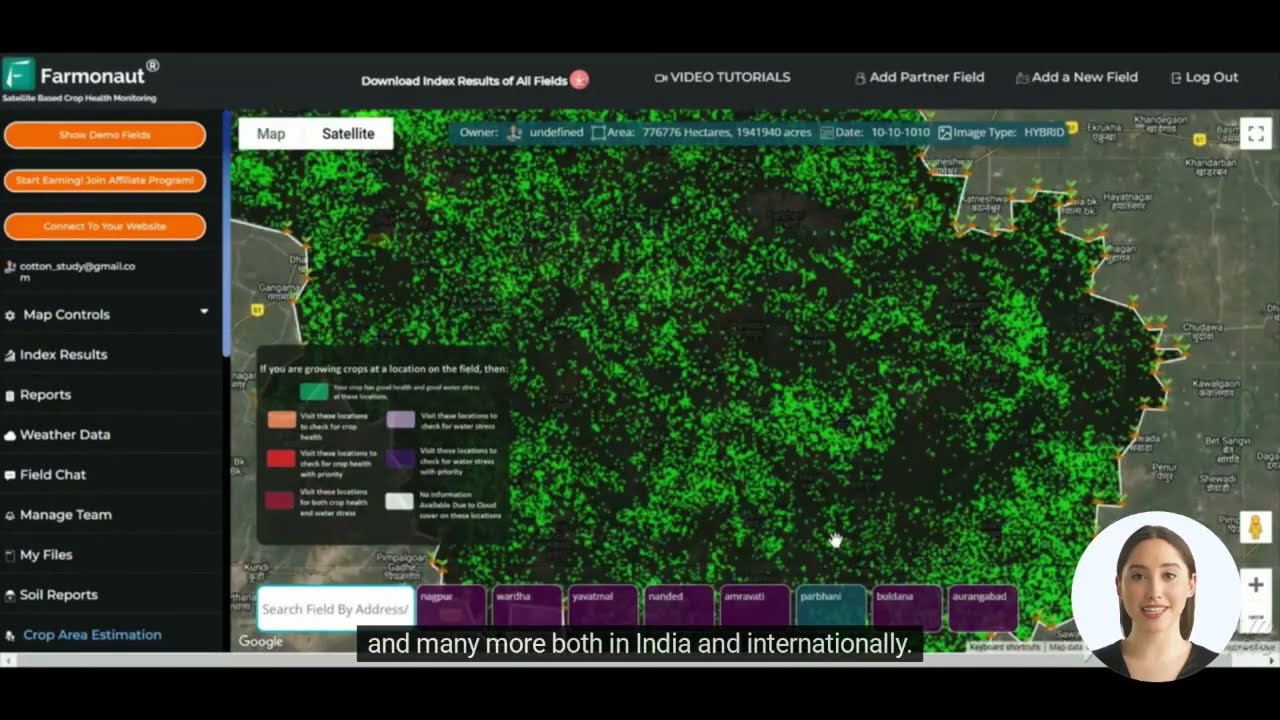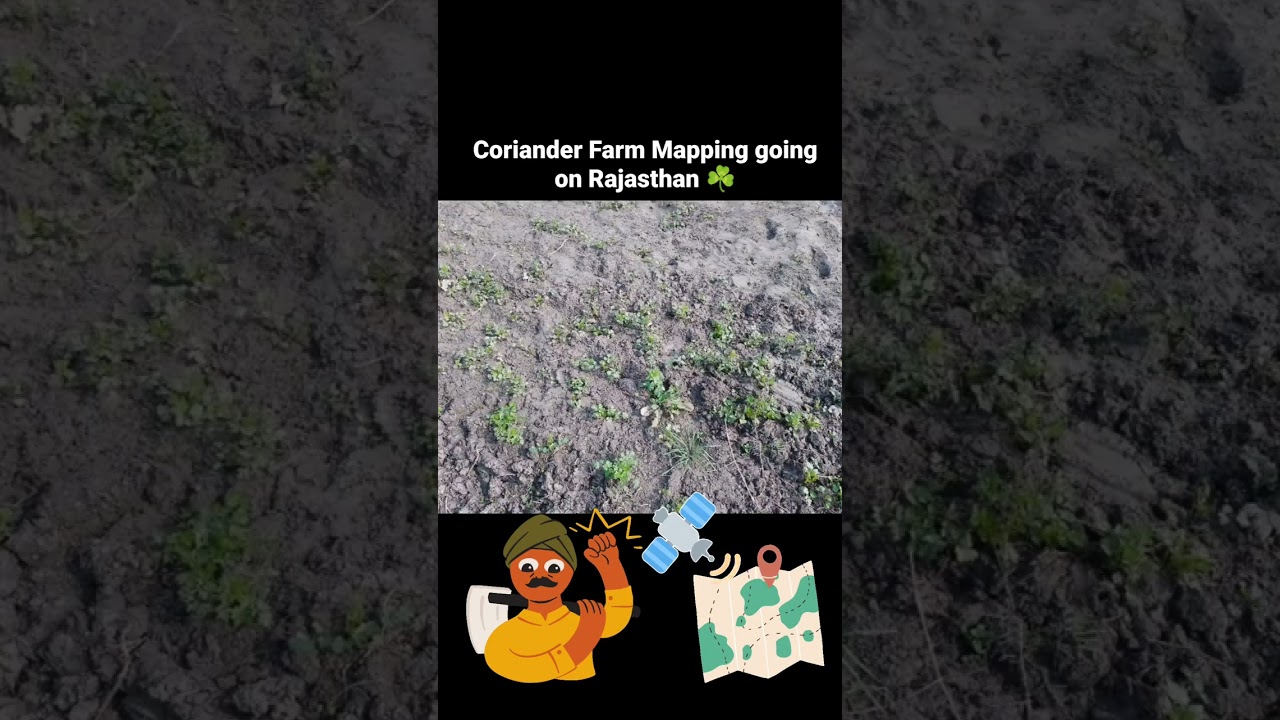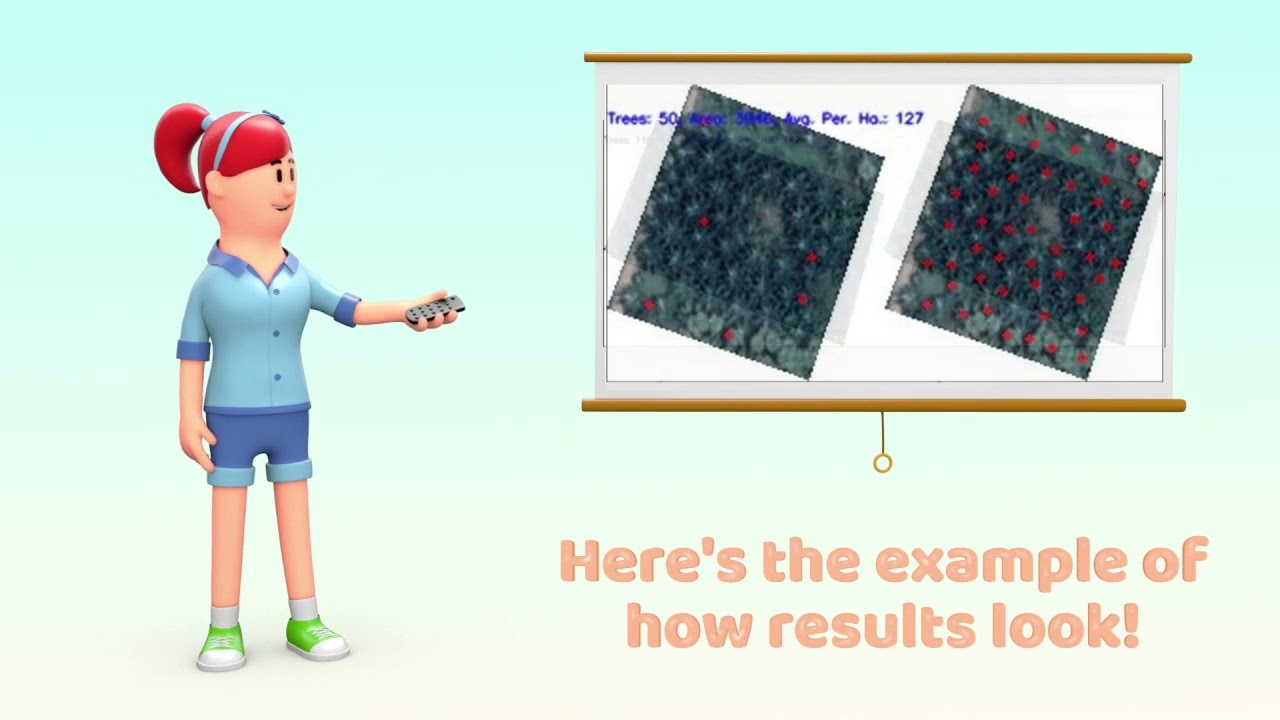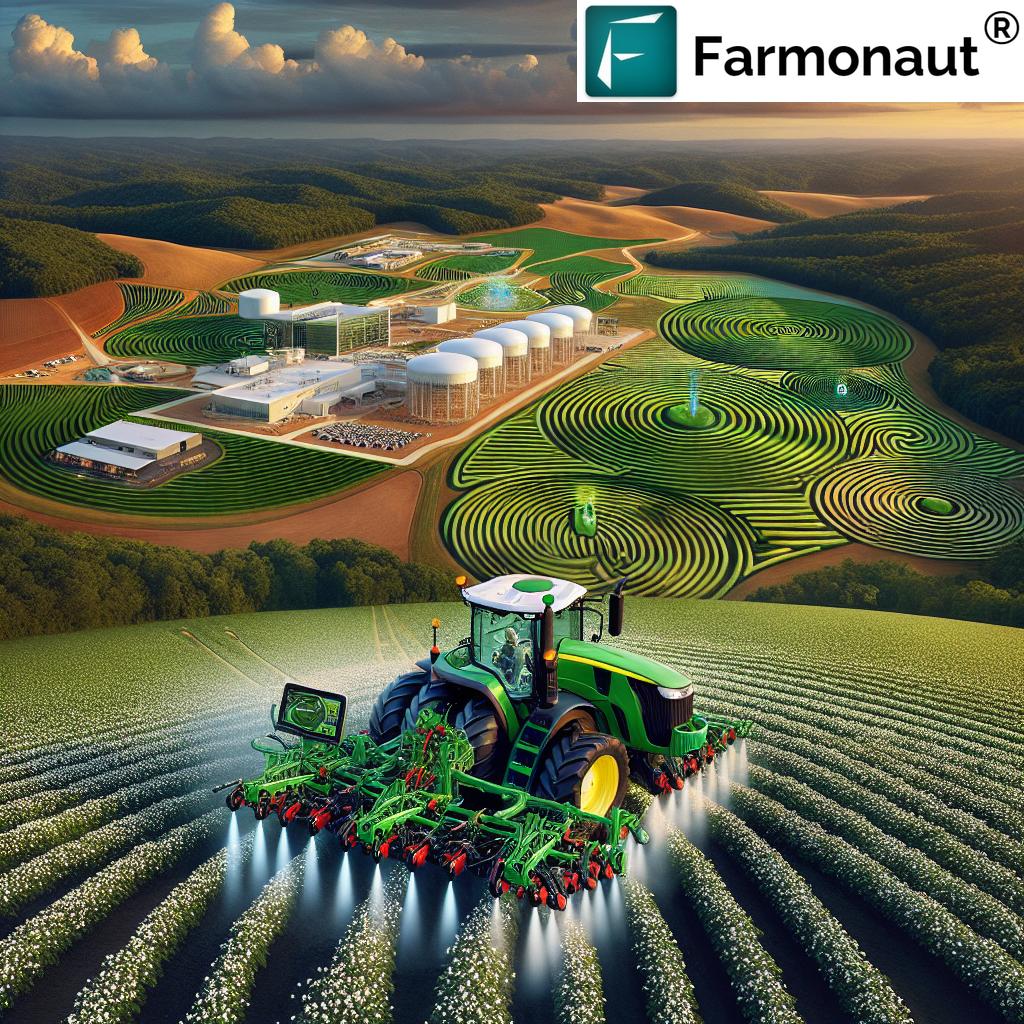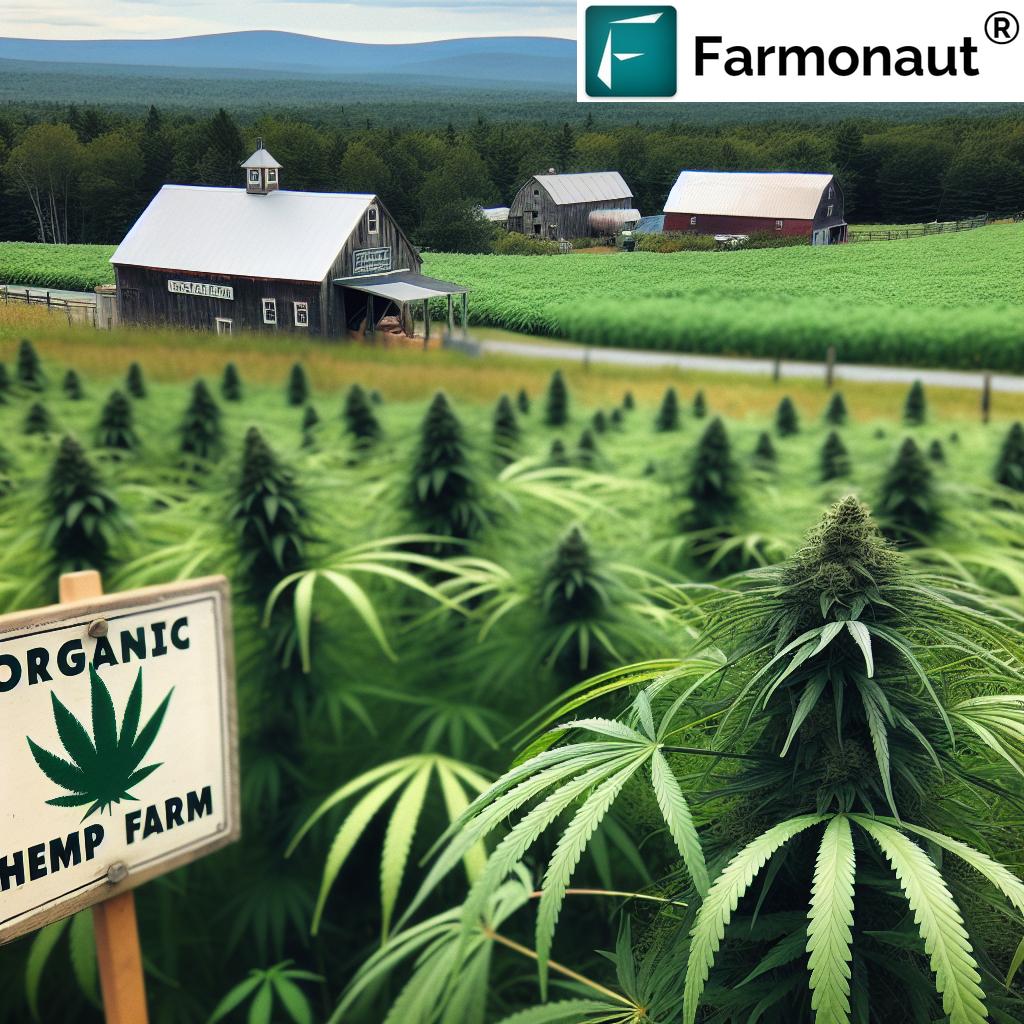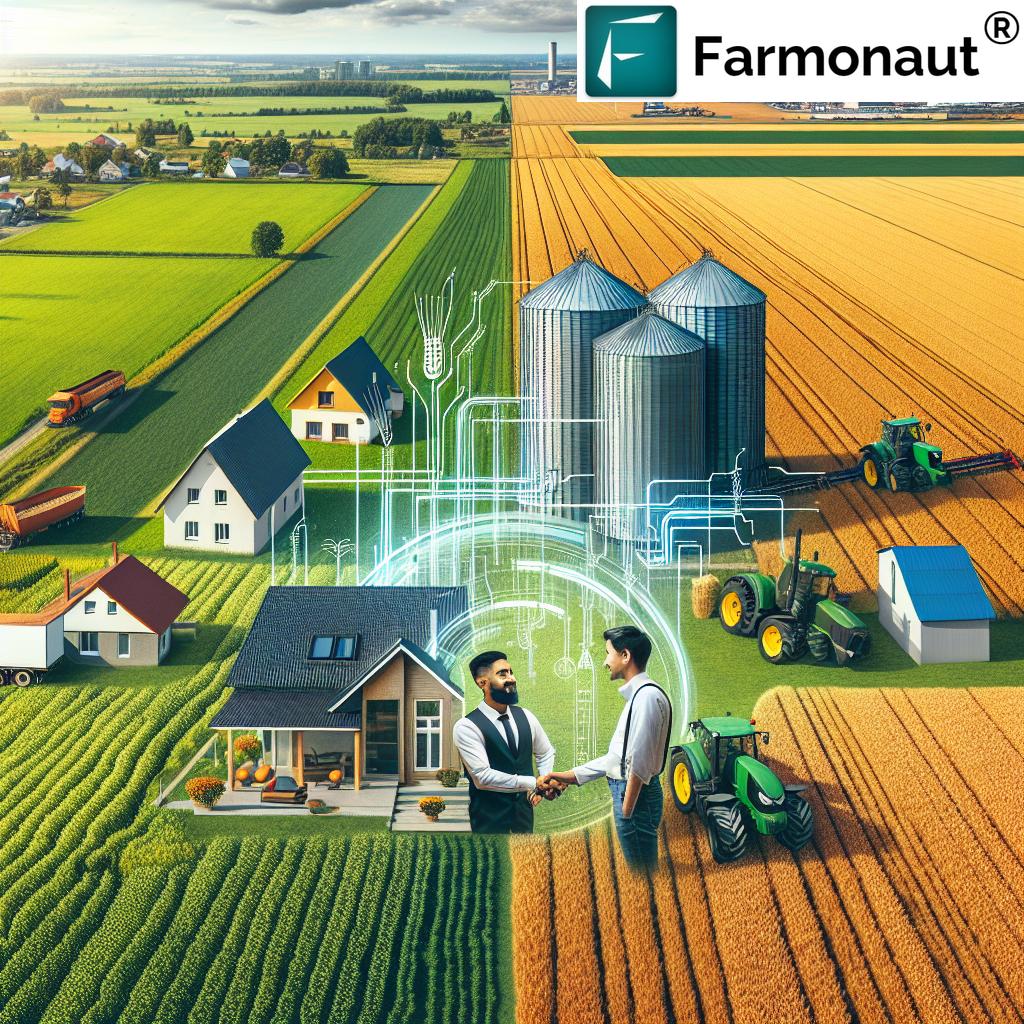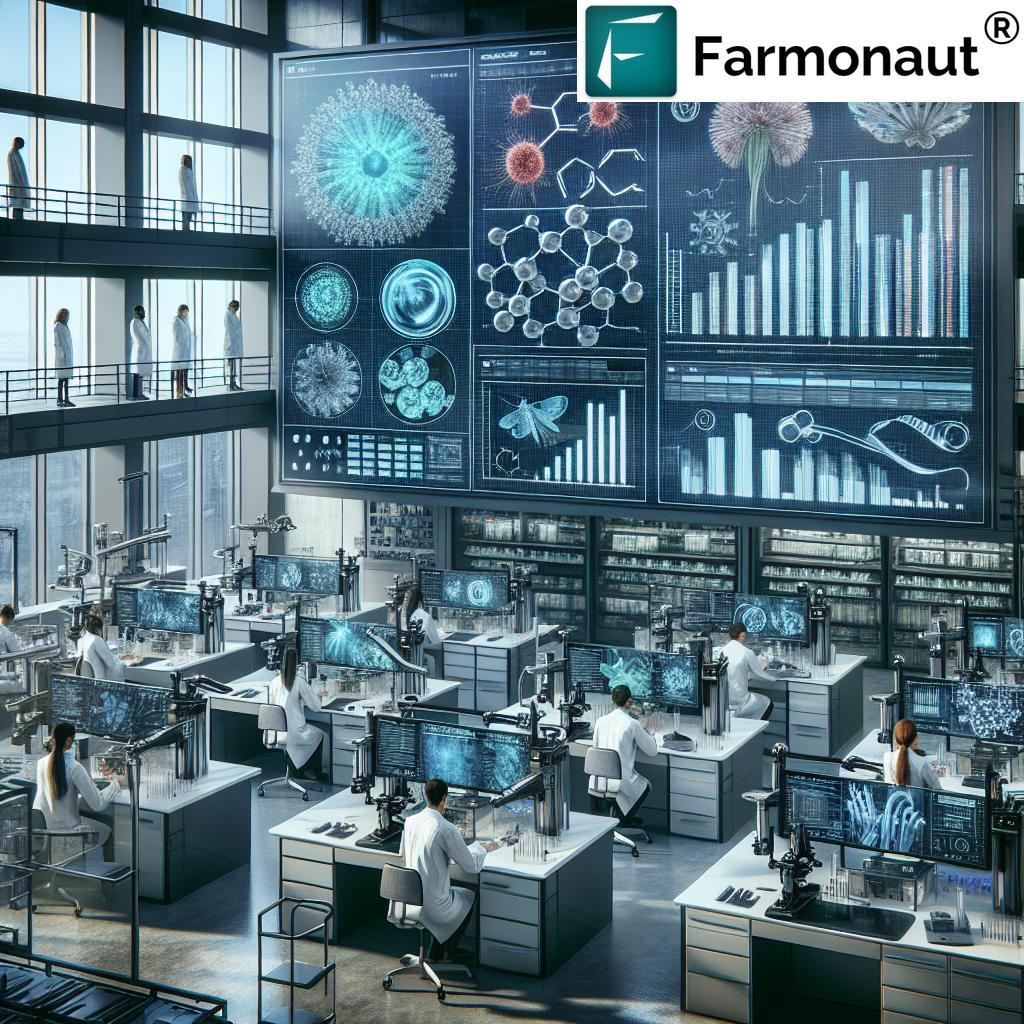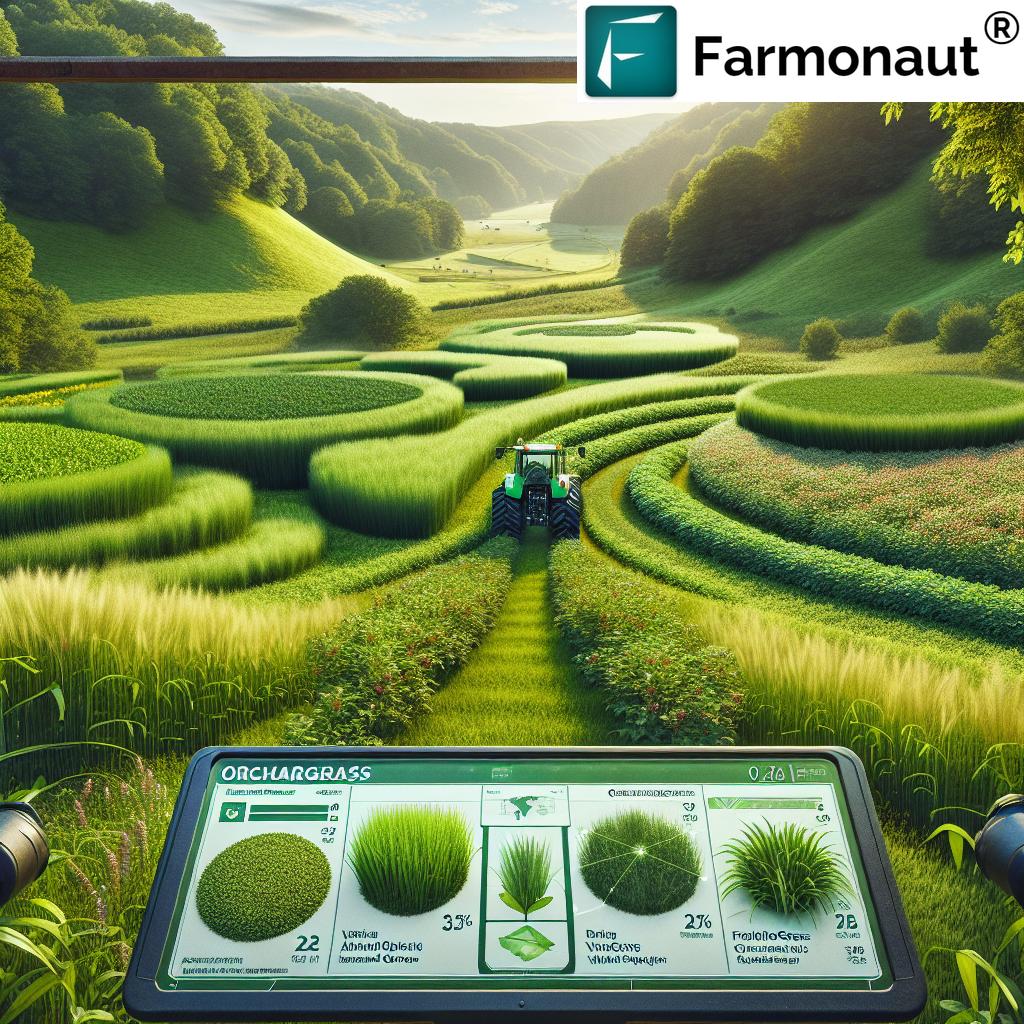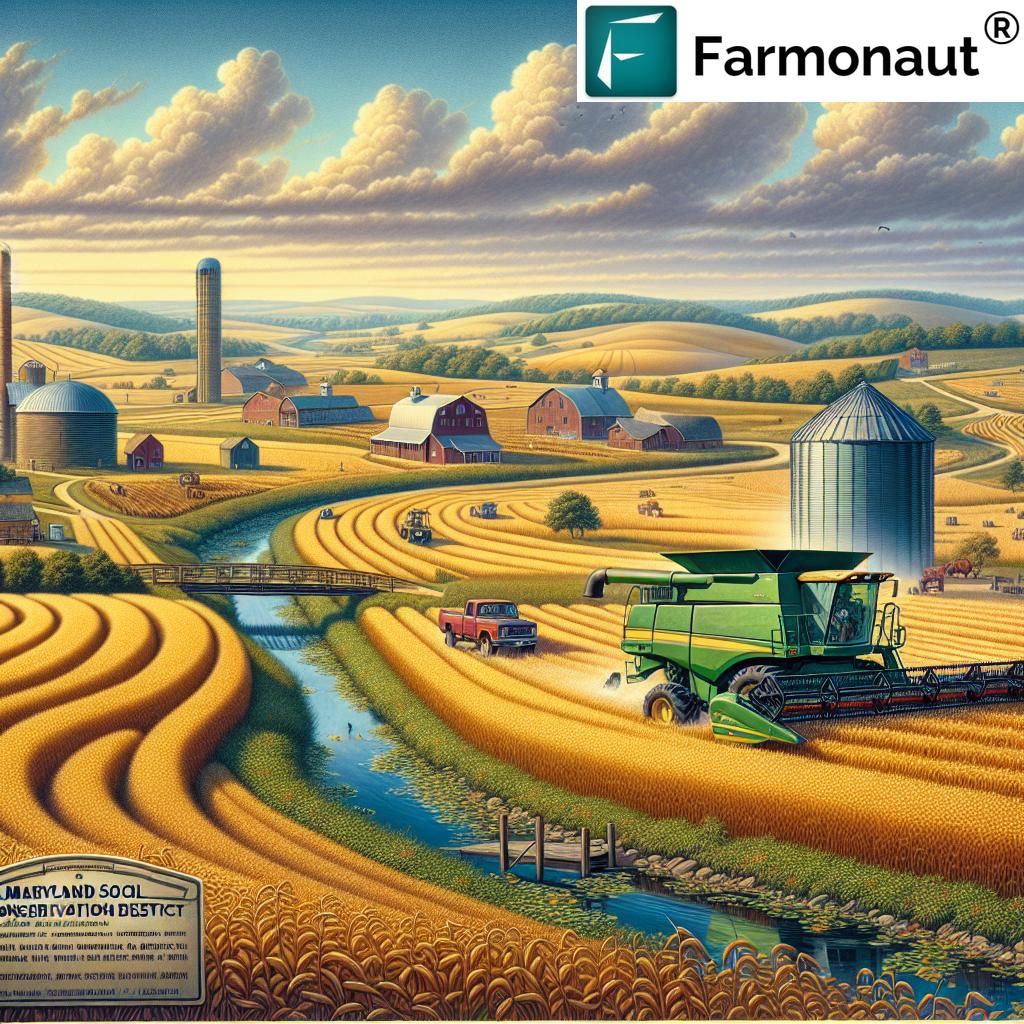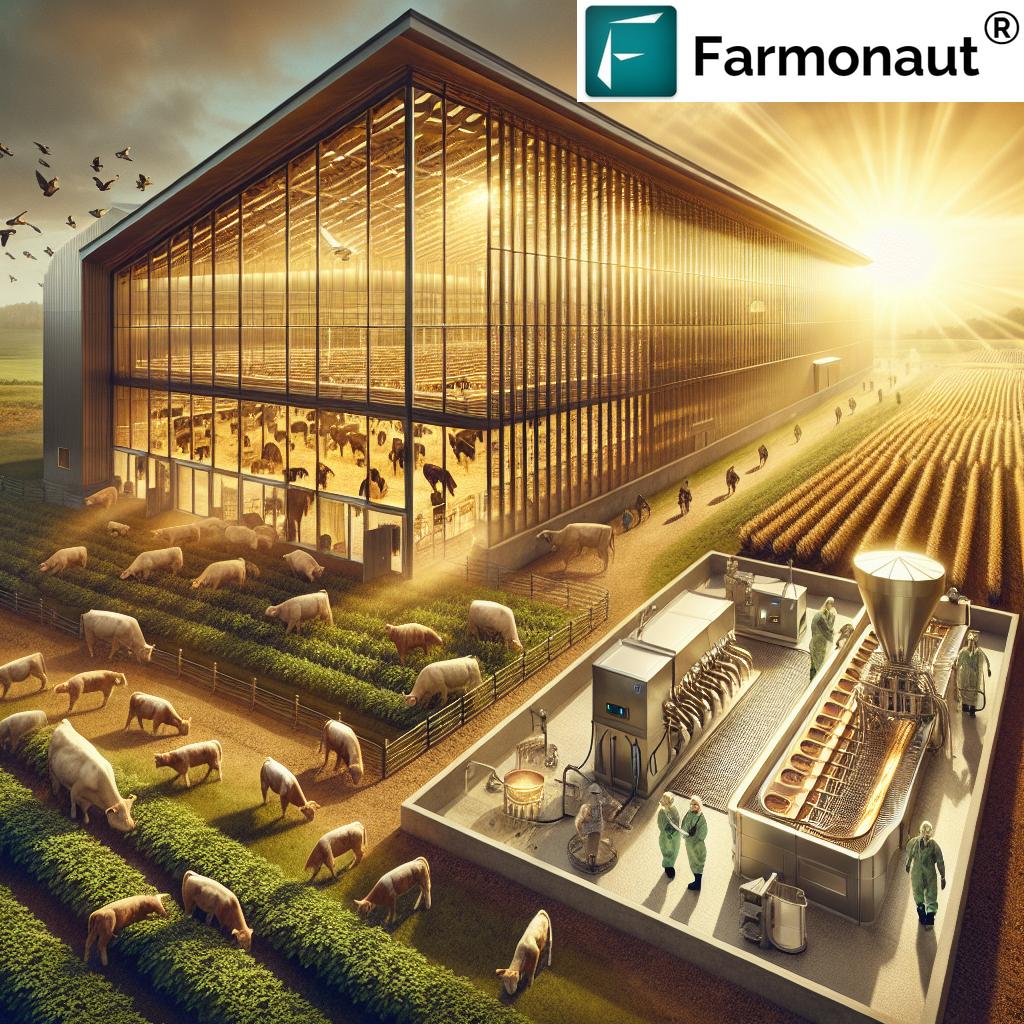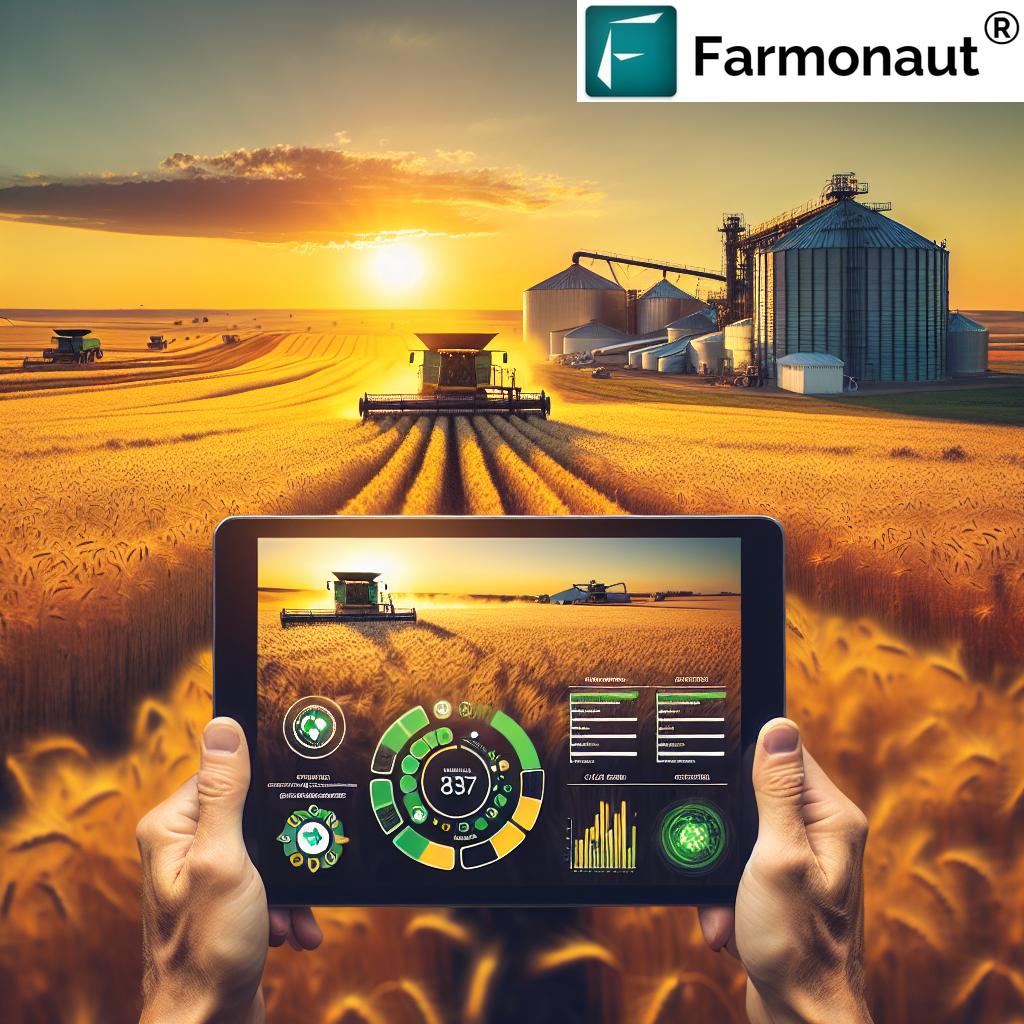Revolutionizing Specialty Crop Farming: Iowa’s Latest Innovations in Fungicide and Precision Agriculture
“Iowa’s specialty crop innovations have led to a 15% increase in fungicide efficiency for fruit and vegetable farms.”
Welcome to Farmonaut’s comprehensive exploration of the cutting-edge advancements shaping the future of specialty crop farming in Iowa and beyond. As pioneers in agricultural technology, we’re excited to share the latest innovations that are transforming the landscape of agribusiness, particularly in the realms of fungicide development and precision agriculture techniques.
In this blog post, we’ll delve into groundbreaking crop protection technologies, sustainable farming practices, and solutions to agricultural labor challenges that are revolutionizing the production of fruits, vegetables, and tree nuts. From vineyard management to leafy vegetable cultivation, we’ll uncover the trends and technologies that are driving the industry forward.
The Evolution of Specialty Crop Farming in Iowa
Iowa, traditionally known for its corn and soybean production, has been making significant strides in diversifying its agricultural portfolio with specialty crops. This shift has been driven by a combination of factors, including:
- Increasing consumer demand for locally grown produce
- The need for crop diversification to enhance farm resilience
- Advancements in agricultural technology making specialty crop production more feasible
As a result, we’re seeing a surge in innovation across various aspects of specialty crop farming, from disease management to precision agriculture techniques.
Groundbreaking Fungicide Developments
One of the most exciting areas of innovation in specialty crop farming is the development of new fungicides. These advancements are crucial for protecting high-value crops from devastating diseases that can significantly impact yield and quality.
Next-Generation Fungicides for Specialty Crops
Recent research in Iowa has led to the creation of novel fungicide formulations that offer:
- Enhanced Efficacy: New chemical compounds provide broader spectrum control against multiple fungal pathogens.
- Reduced Environmental Impact: These fungicides are designed to be more targeted, reducing off-target effects on beneficial organisms.
- Improved Resistance Management: Innovative modes of action help combat fungicide resistance, a growing concern in specialty crop production.
For instance, a new fungicide developed specifically for strawberries in Iowa has shown remarkable results in field trials, reducing fruit rot by up to 30% compared to conventional treatments.
Biological Fungicides: A Sustainable Alternative
In line with the growing demand for sustainable farming practices, Iowa researchers are also making significant progress in the development of biological fungicides. These naturally derived products offer several advantages:
- Compatibility with organic farming systems
- Minimal residue concerns, allowing for application closer to harvest
- Potential for integration with conventional fungicides in integrated pest management programs
A particularly promising biological fungicide, derived from a soil-dwelling bacterium native to Iowa, has shown excellent control of powdery mildew in vineyard trials across the state.
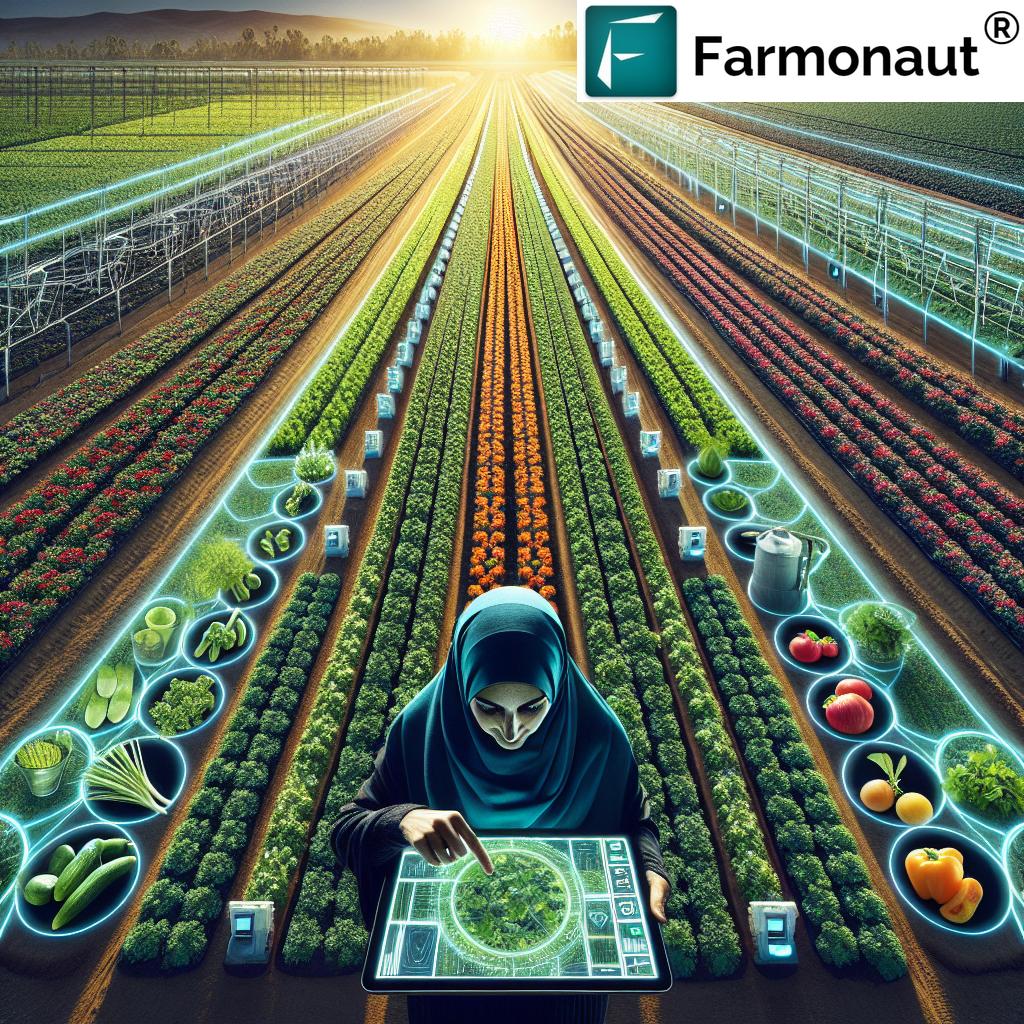
Precision Agriculture: Transforming Specialty Crop Production
Precision agriculture techniques are revolutionizing the way specialty crops are grown in Iowa. These technologies allow farmers to optimize resource use, increase yields, and improve crop quality.
Satellite-Based Crop Monitoring
At Farmonaut, we’re at the forefront of satellite-based crop monitoring technology. Our platform provides real-time insights into crop health, allowing specialty crop growers to:
- Detect early signs of disease or pest infestation
- Optimize irrigation schedules based on soil moisture data
- Make informed decisions about fertilizer application
To experience the power of satellite-based crop monitoring for yourself, check out our web app or download our mobile apps:
Drone Technology in Specialty Crop Management
Drones equipped with multispectral cameras are becoming increasingly popular among Iowa’s specialty crop growers. These aerial systems offer:
- High-resolution imagery for detailed crop analysis
- Ability to scout large areas quickly and efficiently
- Potential for targeted pesticide application, reducing overall chemical use
For example, a vineyard in eastern Iowa has reported a 20% reduction in fungicide use after implementing drone-based scouting and targeted application techniques.
IoT Sensors and Smart Irrigation Systems
Internet of Things (IoT) sensors are transforming irrigation management in specialty crop production. These systems provide:
- Real-time soil moisture data
- Automated irrigation scheduling based on crop needs and weather forecasts
- Integration with weather stations for more accurate decision-making
A lettuce farm in central Iowa has reported a 25% reduction in water usage and a 15% increase in yield after implementing a smart irrigation system.
Addressing Agricultural Labor Challenges
“Recent precision agriculture advancements have reduced labor costs by 20% in specialty crop production across the state.”
Labor shortages continue to be a significant challenge for specialty crop growers. However, innovative solutions are emerging to address this issue:
Robotic Harvesters
Advancements in robotics are leading to the development of automated harvesters for various specialty crops. These machines offer:
- Reduced reliance on manual labor
- Increased harvesting efficiency
- Potential for 24/7 operation during peak harvest periods
A strawberry farm in Iowa has successfully trialed a robotic harvester that can pick ripe berries with 95% accuracy, significantly reducing labor costs.
AI-Powered Crop Management Systems
Artificial intelligence is playing an increasingly important role in specialty crop management. AI systems can:
- Analyze vast amounts of data to provide actionable insights
- Predict optimal harvest times based on crop maturity and market demand
- Assist in pest and disease identification, reducing the need for skilled labor
For instance, our Jeevn AI advisory system at Farmonaut leverages machine learning algorithms to provide personalized crop management recommendations, helping farmers make data-driven decisions more efficiently.
Workforce Training and Development Programs
While technology plays a crucial role in addressing labor challenges, investing in human capital remains essential. Iowa’s agricultural sector is focusing on:
- Developing specialized training programs for specialty crop production
- Creating apprenticeship opportunities to attract young people to agriculture
- Partnering with educational institutions to develop relevant curricula
These efforts aim to create a skilled workforce capable of managing the increasingly technologically advanced specialty crop farms of the future.
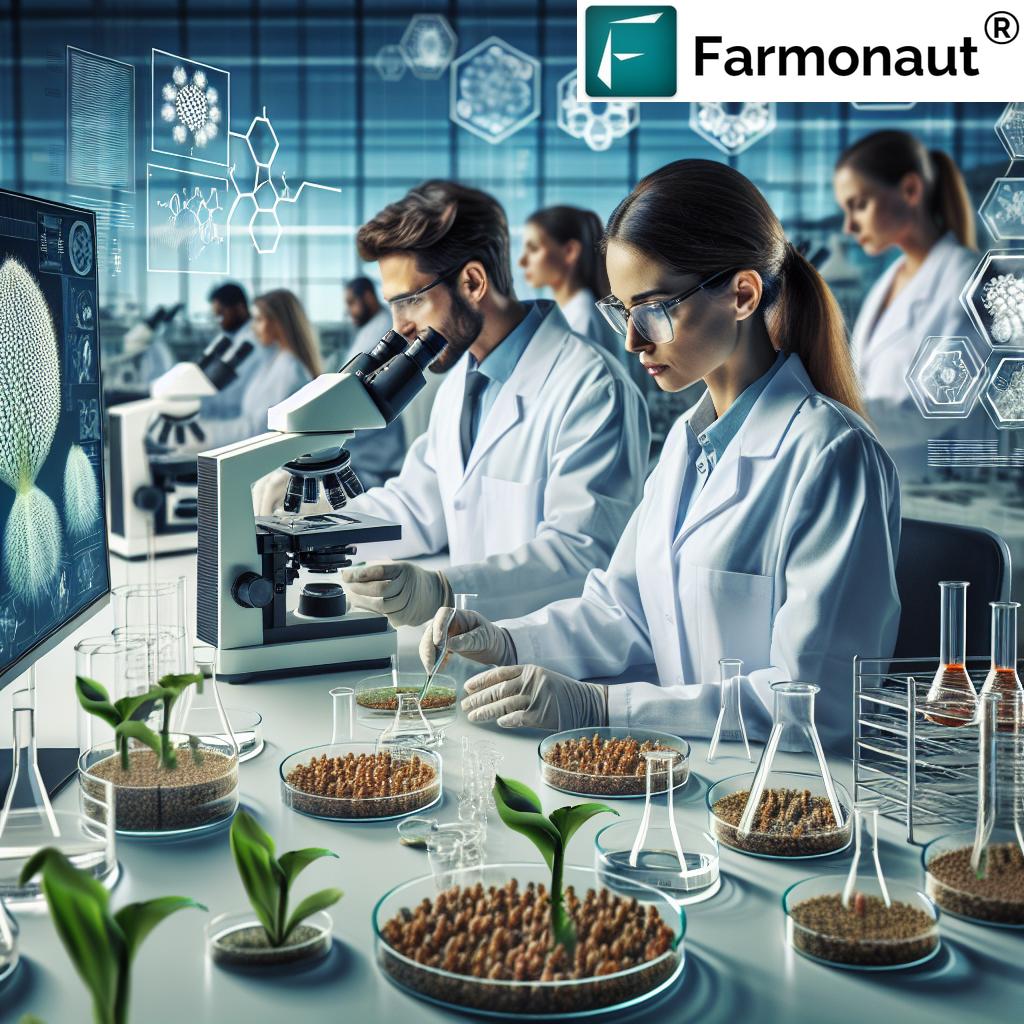
Sustainable Farming Practices in Specialty Crop Production
Sustainability is becoming increasingly important in specialty crop farming, driven by consumer demand and environmental concerns. Iowa farmers are adopting various sustainable practices, including:
Cover Cropping and Soil Health Management
Cover crops play a crucial role in maintaining soil health and reducing erosion. In specialty crop systems, they offer additional benefits:
- Suppression of weeds, reducing herbicide use
- Improvement of soil organic matter content
- Enhancement of beneficial insect populations
A vegetable farm in southern Iowa has reported a 30% reduction in fertilizer use after implementing a comprehensive cover crop rotation system.
Integrated Pest Management (IPM)
IPM strategies are becoming more sophisticated, thanks to advancements in technology and biological control methods. Modern IPM programs in Iowa’s specialty crop farms include:
- Use of pheromone traps and monitoring systems to track pest populations
- Release of beneficial insects to control pest outbreaks
- Implementation of cultural practices that naturally suppress pest populations
These approaches not only reduce pesticide use but also promote overall ecosystem health within the farm.
Water Conservation Technologies
Water management is critical in specialty crop production. Iowa farmers are adopting various water conservation technologies, such as:
- Drip irrigation systems for precise water delivery
- Rainwater harvesting and storage systems
- Use of mulches to reduce evaporation and conserve soil moisture
These practices not only conserve water but also contribute to improved crop quality and yield consistency.
The Role of Agricultural Policy in Driving Innovation
Agricultural policy plays a crucial role in shaping the landscape of specialty crop farming in Iowa. Recent policy developments have had significant impacts on innovation and adoption of new technologies:
Specialty Crop Block Grant Program
The USDA’s Specialty Crop Block Grant Program has been instrumental in funding research and development initiatives in Iowa. Key areas of focus include:
- Development of new disease-resistant crop varieties
- Research into novel pest management strategies
- Promotion of locally grown specialty crops
These grants have accelerated innovation in the specialty crop sector, leading to increased productivity and sustainability.
Tax Incentives for Technology Adoption
Iowa has implemented tax incentives to encourage the adoption of precision agriculture technologies in specialty crop farming. These incentives cover:
- Purchase of GPS-guided equipment
- Installation of soil moisture sensors and weather stations
- Adoption of data management and analysis software
These policies have significantly increased the rate of technology adoption among specialty crop growers in the state.
Support for Organic and Sustainable Farming Practices
State-level policies in Iowa are increasingly supporting organic and sustainable farming practices in specialty crop production. Initiatives include:
- Cost-share programs for organic certification
- Research funding for sustainable pest management strategies
- Educational programs on soil health and conservation practices
These policies align with growing consumer demand for sustainably produced specialty crops and help farmers transition to more environmentally friendly production methods.
The Future of Specialty Crop Farming in Iowa
As we look to the future, several trends are likely to shape the specialty crop sector in Iowa:
Climate-Resilient Crop Varieties
With changing climate patterns, the development of climate-resilient specialty crop varieties will be crucial. Research is focusing on:
- Drought-tolerant fruit and vegetable varieties
- Crops with improved heat and cold tolerance
- Varieties with enhanced disease resistance
These advancements will help ensure the stability and sustainability of specialty crop production in the face of climate challenges.
Vertical Farming and Controlled Environment Agriculture
Vertical farming and controlled environment agriculture are emerging as promising solutions for year-round production of certain specialty crops. Benefits include:
- Reduced water usage and pesticide application
- Consistent quality and yield regardless of outdoor conditions
- Potential for urban agriculture, bringing production closer to consumers
While still in its early stages in Iowa, this technology has the potential to revolutionize the production of leafy greens and herbs in particular.
Blockchain Technology for Supply Chain Transparency
Blockchain technology is set to transform the specialty crop supply chain, offering:
- Enhanced traceability from farm to consumer
- Improved food safety through rapid identification of contamination sources
- Potential for fair pricing models that benefit both farmers and consumers
At Farmonaut, we’re developing blockchain-based solutions to help specialty crop growers and buyers streamline their supply chain operations and build consumer trust.
Comparison of Specialty Crop Innovations
To provide a comprehensive overview of the latest advancements in specialty crop farming, we’ve compiled a comparison table of recent innovations:
| Innovation Category | Technology/Method | Target Crops | Estimated Yield Improvement (%) | Sustainability Impact | Implementation Cost ($/acre) | Adoption Rate in Iowa (%) |
|---|---|---|---|---|---|---|
| Fungicide | Next-Gen Chemical Fungicide | Strawberries, Grapes | 15-20 | Medium | 150-200 | 30 |
| Fungicide | Biological Fungicide | Various Vegetables | 10-15 | High | 100-150 | 20 |
| Precision Agriculture | Satellite-Based Crop Monitoring | All Specialty Crops | 10-25 | High | 50-100 | 40 |
| Precision Agriculture | Drone-Based Scouting | Orchards, Vineyards | 5-10 | Medium | 200-300 | 25 |
| Labor Solutions | Robotic Harvesters | Strawberries, Apples | N/A (Labor Savings: 30-40%) | Medium | 1000-1500 | 5 |
| Sustainable Practices | Cover Cropping | Various Vegetables | 5-15 | High | 50-100 | 60 |
This table illustrates the diverse range of innovations currently shaping specialty crop farming in Iowa. It’s clear that while some technologies, like satellite-based crop monitoring, are seeing widespread adoption due to their cost-effectiveness and broad applicability, others, such as robotic harvesters, are still in the early stages of implementation but show significant promise for the future.
Leveraging Farmonaut’s Technology for Specialty Crop Success
At Farmonaut, we’re committed to supporting specialty crop growers with cutting-edge technology solutions. Our platform offers:
- Real-time Crop Health Monitoring: Using satellite imagery and advanced algorithms, we provide up-to-date information on crop health, allowing for timely interventions.
- AI-Powered Advisory: Our Jeevn AI system offers personalized recommendations based on crop conditions, weather data, and historical trends.
- Resource Optimization Tools: From water management to fertilizer application, our platform helps growers make data-driven decisions to optimize resource use.
To explore how Farmonaut can benefit your specialty crop operation, visit our web app or check out our API for custom integrations:
Conclusion: Embracing Innovation for a Sustainable Future
The specialty crop sector in Iowa is undergoing a remarkable transformation, driven by technological innovations, sustainable practices, and supportive policies. From groundbreaking fungicide developments to precision agriculture techniques and labor-saving technologies, these advancements are reshaping the landscape of specialty crop farming.
As we move forward, the integration of these innovations will be crucial for addressing the challenges of climate change, resource scarcity, and increasing consumer demands. By embracing these technologies and practices, Iowa’s specialty crop growers can enhance their productivity, sustainability, and competitiveness in the global market.
At Farmonaut, we’re excited to be part of this agricultural revolution, providing farmers with the tools and insights they need to thrive in this evolving landscape. Together, we can build a more resilient, sustainable, and productive future for specialty crop farming in Iowa and beyond.
FAQ Section
Q: What are specialty crops, and why are they important for Iowa’s agriculture?
A: Specialty crops include fruits, vegetables, tree nuts, and horticultural crops. They’re important for Iowa’s agriculture because they diversify farm income, meet growing consumer demand for locally grown produce, and contribute to the state’s agricultural economy.
Q: How are new fungicides improving specialty crop production?
A: New fungicides offer enhanced efficacy against a broader spectrum of pathogens, reduced environmental impact, and improved resistance management. This leads to better crop protection, higher yields, and more sustainable farming practices.
Q: What role does precision agriculture play in specialty crop farming?
A: Precision agriculture technologies, such as satellite-based crop monitoring and IoT sensors, allow farmers to optimize resource use, detect issues early, and make data-driven decisions. This results in improved yields, reduced input costs, and more sustainable production practices.
Q: How is Iowa addressing the labor challenges in specialty crop farming?
A: Iowa is addressing labor challenges through a combination of technological solutions (like robotic harvesters and AI-powered management systems) and workforce development programs. These efforts aim to increase efficiency and attract skilled workers to the agricultural sector.
Q: What sustainable farming practices are being adopted in specialty crop production?
A: Sustainable practices being adopted include cover cropping, integrated pest management, water conservation technologies, and organic farming methods. These practices help conserve resources, reduce environmental impact, and improve long-term soil health.
Q: How can Farmonaut’s technology benefit specialty crop growers?
A: Farmonaut’s technology provides real-time crop health monitoring, AI-powered advisory services, and resource optimization tools. These features help growers make informed decisions, improve crop management, and increase overall farm productivity and sustainability.




